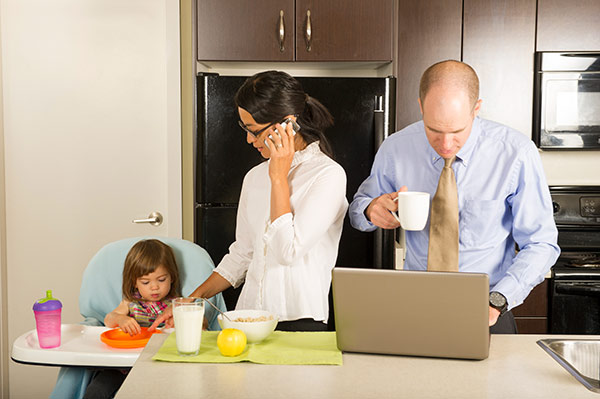- Parenting
- YouthFirst
At their best modern devices are helpful tools and can make our lives easier. At their worst they are remarkably addictive, and research now clearly shows that their use can lead to a host of behavioral, interpersonal, and mood issues for people of all ages.
If you are reading this you likely have a young child or adolescent in your life. I have some bad news for you—for young children in particular screen-time has been shown to have negative effects on sleep (which can also negatively impact mood and lead to behavioral issues), social interaction and learning, executive functioning (e.g., self-regulation and memory), and attention.

Last fall the American Academy of Pediatrics released a new policy statement on children’s media use. It recommends that parents of toddlers under 18 months keep them away from screens all together, while children between 2 and 5 years old have a screen limit of one hour per day, and that families should be advised to place consistent limits on screen time for children 6 and older while designating media-free times together in the home.
Take a Look at Your Family’s Screen Use
I recommend re-evaluating you and your children’s screen time habits from time to time to see what is working and what isn’t. You may decide to reduce daily time spent on devices, restrict types of media accessed (or the allowed reasons for using devices), or even eliminate screen use during certain times of the day.
I recommend eliminating screens during shorter car rides, before school, during meals, and/or before bed as these tend to be the times that can lead to the most issues and tend to be used in passive, non-educational ways.
Be sure to sit down as a family, discuss the reasons for any rule changes, and allow your children to voice some input. (Expect some pushback.)
Take a “Digital Detox” as a Family
Exciting, right? Planning a screen-free period with everyone can be an exciting experiment. Pick a weekend or week in the coming months—parents, that includes YOU!
Don’t forget to plan a few low-cost supplementary activities that you can do together or consider planning your detox to coincide with a family vacation.
By evaluating you and your family’s use of digital devices and consciously “unplugging” from time to time you can support your family’s social-emotional well-being and foster deeper connections with one another.
Need help with discussing digital device habits with your kids or have other questions about parenting? Schedule a consultation at JFCS’ Parents Place >
Robyn Matlon, M.Ed., M.A., Psy.D., is a licensed psychologist with specialized training in play therapy, child development, attachment, depression, anxiety, complex trauma, and post-traumatic stress disorder. Robyn conducts comprehensive psychological assessments of children for a range of issues, including learning, attention, and memory challenges, as well as struggles with social-emotional or behavioral functioning. Her approach is strengths-based, collaborative, and draws on psychodynamic, cognitive-behavioral, mindfulness, and play therapy techniques. Robyn can be reached at JFCS’ Parents Place in San Rafael: 415-419-3625 or [email protected].
